The Internet’s Role in the Golden Age of Entertainment
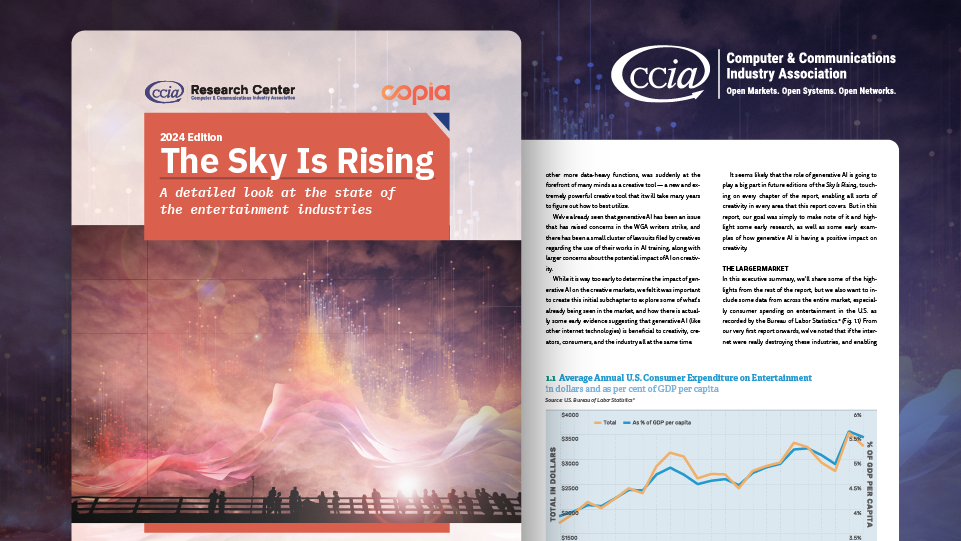
For decades, warnings about the dangers of digitization to the entertainment industry have dominated the public narrative. Creators and consumers alike have feared that with the growth of the internet, creativity and diverse expression would give way to a small number of mass-produced cultural products enabled by digital technologies. However, a new report from the CCIA Research Center proves the reality of the internet’s impact on entertainment is just the opposite: the internet and the digital tools it supports have catalyzed a golden age of entertainment, with creators and consumers thriving amid record growth in the music, film, gaming, and publishing sectors.
The CCIA Research Center report, produced in partnership with the Copia Institute, directly refutes the notion that the internet poses a threat to the entertainment industries, with data demonstrating impressive growth in each of four subsectors of the entertainment industry studied. For example, data shows that average annual U.S. consumer expenditure on entertainment has increased by approximately $1,700 since the internet began to become a widespread fixture of the American home and consumer behavior as well as an industry tool.
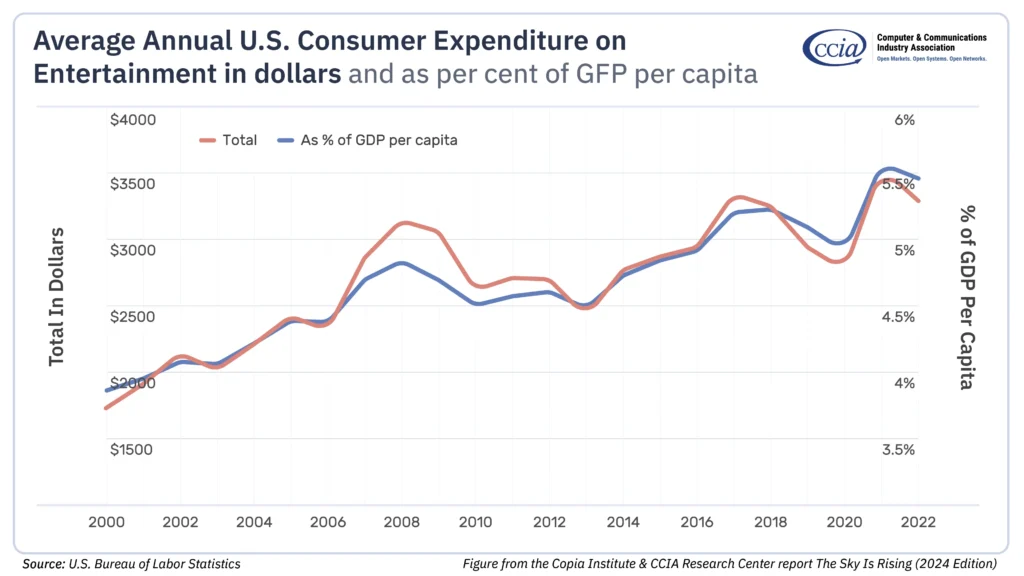
Data also demonstrates impressive growth in the music industry. Despite the COVID-19 pandemic limiting in-person entertainment like movie theaters and live musical performances in 2020-2021, consumers and creators alike are shown to be thriving within the entertainment economy, with tech-fueled growth expected to continue into 2024 and beyond. Data shows global music revenue to have reached a record-breaking $26.2 billion in 2022, with growth expected to continue. The research also demonstrates that the number of tracks released has boasted a steady and steep incline since 2018, proving that the internet served as a valuable tool and a buoy for the industry while in-person gatherings for live concerts were restricted or limited during the pandemic.
The research paints an exciting picture for the global movie industry, which brought in a record $99.7 billion in revenue in 2021 despite the COVID-19 pandemic’s hit on theater revenues. Data clearly shows that the sky is rising for the broader video industry, with both the number of movies and U.S. scripted TV series released annually reaching new heights in recent years.
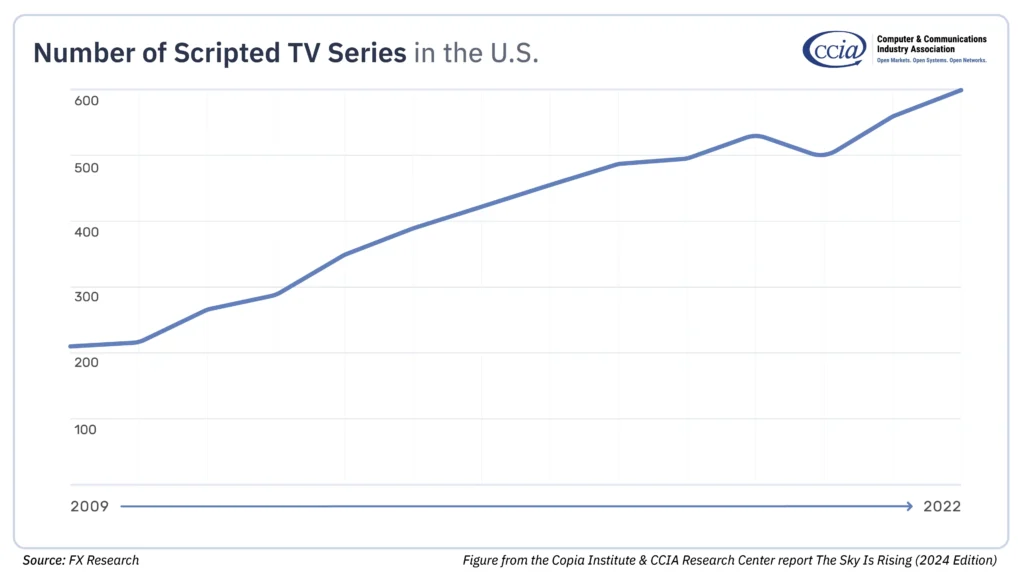
The global gaming industry has also seen dramatic growth since the year 2000. In the past five years alone, global video game revenue jumped over $90 billion — an impressive increase nearly entirely facilitated by the internet as a core tenet of the gaming industry. The stark growth in video gamers worldwide since 2015 also serves as an encouraging data point illustrating the internet’s ability to broaden consumer bases with its global reach.
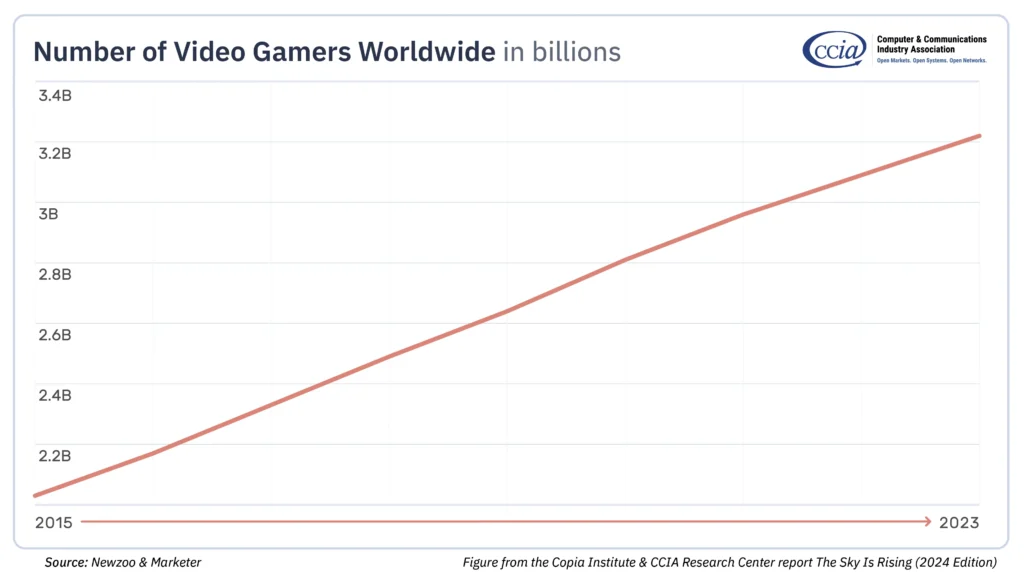
As for the global publishing industry, the internet’s impact has been transformative. Digital tools and services introduced not just new modes of consumption like audiobooks and eBooks, but entirely new products and subsectors of the publishing industry like podcasts. Global book revenues have been boosted significantly by these new digitally-enabled entertainment products.
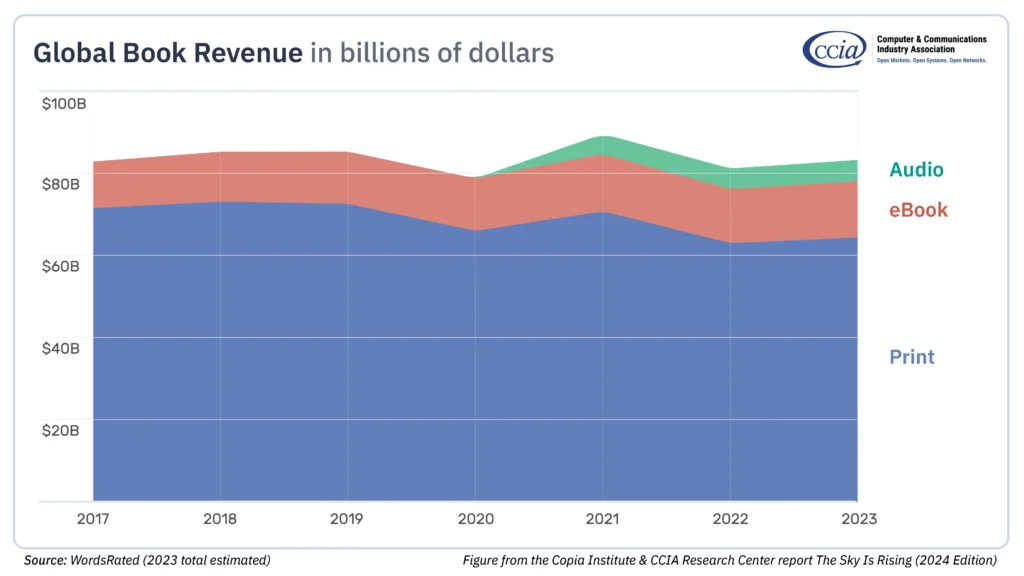
Despite pessimistic predictions for the internet’s impact on entertainment, the data clearly shows what many of us are observing: the internet is facilitating an entertainment renaissance that gives consumers a wider breadth and more diverse pool of creative content than ever before. Far from bringing about the demise of creativity and the entertainment economy, authors of the new report contend that the internet’s role in the economic growth of the entertainment industry is “the single largest driver of success, not just for those industries but for creativity as a whole.”
In order to empower both creators and consumers of creative content as well as the global economy, policy should support, not impede, digital innovation in entertainment.








